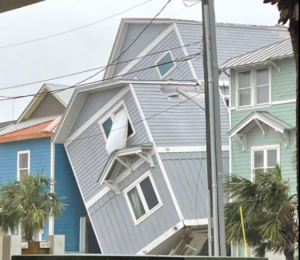Efforts to shrink state-run Citizens Property Insurance Corp. continue, even though the state-run “insurer of last resort” is about one-third as large as it was in 2012.
Citizens remains the tri-county region’s largest insurer with 231,633 personal residential policies at the end of March.
State insurance regulators have approved 69,746 more Citizens policies for “takeout” by private insurance companies, according to a news release Thursday.
What’s new is that 74 percent of policies approved for takeout are in high-risk coastal areas. Those are the types of policies that private insurers shunned in recent years because they are most vulnerable to hurricane damage. They also were the types of policies private insurers were quickest to drop after Hurricane Andrew in 1992 and the storms that battered Florida in 2004 and 2005.
So the types of Citizens policies most attractive to private insurers now are the types of policies that led to the creation of the state-run insurance company in the first place.
The share of coastal accounts taken out of Citizens increased from 9 percent in 2012 to 36 percent in 2015. Through July of this year, 42 percent of transferred accounts were coastal, Citizens’ data shows.
Coastal accounts have become more popular for several reasons.
One is that the most attractive non-coastal accounts — the low-hanging fruit — have already been transferred. What’s left of the non-coastal properties have issues. Maybe it’s their age. Maybe they are in neighborhoods with high claims histories. Insurers see something that makes them believe losses are more likely and they stay away.
“It’s all about the characteristics of each individual property that determines whether they are ‘desirable’ or not,” Citizens spokesman Michael Peltier said in an email Thursday. For the remaining multi-peril, non-coastal accounts, “we are approaching a point where we have returned to the role as the insurer of last resort.”
Private insurers also are selecting more coastal accounts because of declines in the cost of reinsurance — insurance that insurance companies have to buy — thanks to a lack of catastrophes and low interest rates globally that make reinsurance funds attractive to capital investors. Low reinsurance costs enable private insurers to take on more risk and still make money.
Meanwhile, rates for many of Citizens’ coastal accounts finally reached parity with the private market. Previously, Citizens’ wind insurance rates were artificially low and the company was barred by state law from raising them more than 10 percent a year.
Over the past two years, “we’ve been told that after reviewing our portfolio of coastal policies, takeout companies found many where the risk and premium are attractive,” Peltier said.
In a rate hearing before the Office of Insurance Regulation on Aug. 18, Citizens chief risk officer John Rollins said more than 100,000 adequately priced wind-only policies — available only in high-risk coastal areas — had been selected by private insurers. Now Citizens has only 40 percent as many wind-only policies as it once had, and most of those remain under-priced but on the path to “adequate rates over time.”
Approved for personal residential takeouts beginning on Nov. 22 were:
• Homeowners Choice Property & Casualty — up to 8,100 personal lines accounts and 18,900 (multi-peril and wind-only) coastal accounts.
• National Specialty Insurance Co. — up to 8,421 wind-only coastal accounts.
• Safepoint Insurance Co. — up to 4,000 wind-only coastal accounts.
• Southern Oak — up to 15,000 personal lines accounts and 5,000 coastal accounts (multi-peril and wind-only).
• Weston — up to 9,577 wind-only coastal accounts.
In addition, state regulators approved takeout by Weston of up to 5,423 commercial accounts and by Safepoint of 325 commercial accounts.
Policyholders are not required to accept takeout offers but must send back an opt-out letter if they decline coverage from the private company. More information is available is at citizensfla.com/depopulation.





